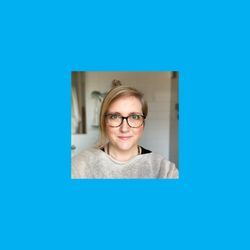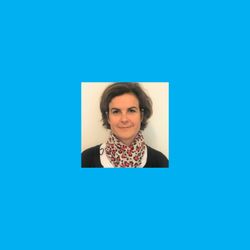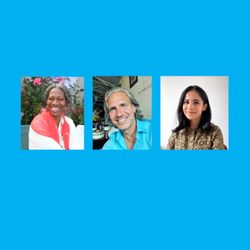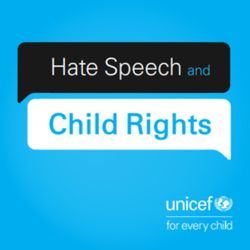Latest episode

11. How structural inequality and exclusion fuel hate
09:52||Season 1, Ep. 11Vanessa Wyeth is UNICEF’s Global Lead for Conflict Prevention, Fragility and Peacebuilding. She brings to the role 20 years of policy experience working on conflict and fragility, most recently serving as Senior Policy Adviser at the Permanent Mission of Canada to the UN, where she led Canada’s 2020 chairmanship of the Peacebuilding Commission and was one of the lead negotiators for the 2016 and 2020 resolutions on peacebuilding and sustaining peace. Prior to joining the mission in 2015, she worked at the OECD Development Cooperation Directorate as lead advisor on conflict and fragility and head of the secretariat for the DAC International Network on Conflict and Fragility. Before that, she worked at NYU’s Center on International Cooperation and the International Peace Institute, where she led IPI’s research on peacebuilding and state fragility from 2004-2012, and served as a visiting fellow to USAID’s Center for Conflict Management in 2011. She started her career working for UNFPA in Kosovo in 2002, with additional field experience in Niger and Rwanda, and has published widely on conflict, development, and peacebuilding, including as co-editor, with Chuck Call, of Building States to Build Peace (Lynne Rienner, 2008). She holds a master’s degree in international affairs from Columbia University.
More episodes
View all episodes

10. The link between hate speech and child rights in armed conflict
16:53||Season 1, Ep. 10Aurélie Lamazière is Senior Programme Manager with Save the Children, based in Geneva. With Save the Children for almost 10 years, she currently leads Save the Children’s work on accountability for grave violations affecting children in conflict. Aurélie has worked for various humanitarian non-governmental organisations both at field and headquarter levels. She combines strong experience in humanitarian policy and advocacy work and technical expertise notably on international legal accountability mechanisms.
9. The impact of hate speech on early childhood development
11:54||Season 1, Ep. 9Erinna Dia, UNICEF Associate Director for Early Childhood Development. Before moving to UNICEF’s Headquarters as Associate Director for Early Childhood Development, Ms. Erinna Dia worked as Chief of Education in West and Central Africa, the Middle East and South Asia where, with the teams under her leadership, she has achieved critical results for children in complex and nonpermissive political and operational environments. Prior to joining UNICEF, Erinna Ms. Dia held technical positions in the human development and economics departments of the African Development Bank. In these capacities, she worked with Regional Member Countries on the elaboration and implementation of education and protection projects to foster social transformation and generate growth through improved access to education, skills, technology and employment. She has co-authored several papers and journal articles on parenting, and education challenges and opportunities in Sub-Saharan Africa.Eduardo Garcia Rolland, Early Childhood Development Specialist. Eduardo García Rolland is a humanitarian worker with more than 25 years of experience in child protection, management, emergencies, education and early childhood development. He holds a law degree and a masters on international humanitarian aid from Spain and Germany. He started working in Latin-America in Peru in 1995. Since then Eduardo has been involved in different emergencies, civil wars, and natural disasters in Burundi, Rwanda, DRC, Sierra Leone, Colombia, Mexico, Haiti, Sri Lanka, Jordan, etc. He has worked in civil society organisations as well as intergovernmental agencies. Previously, Eduardo worked in the Middle-East as UNICEF ECD and ECE Specialist since 2017 based in Amman. Nowadays, he is Early Childhood Development Specialist focusing on humanitarian settings within the Nutrition and Child Development Team.Radhika Mitter, Early Childhood Development Specialist. Radhika Mitter is an Early Childhood Development (ECD) Specialist at UNICEF Headquarters, New York, responsible for global evidence and knowledge management of ECD programmes. Radhika's work focuses on providing technical support and facilitating global knowledge exchange and learning on ECD programmes including those focused on the promotion of nurturing care, parenting support, and caregiver mental health. Prior to UNICEF, Radhika worked at the World Bank and Results for Development where she provided research and analytical support to ECD and Education-focused programmes. She holds a master’s degree in International Development with a concentration in Education.
8. Hate speech based on sexual orientation and gender identity
11:30||Season 1, Ep. 8Mr. Madrigal-Borloz,a Costa Rican jurist, is a senior visiting researcher at the Harvard Law School’s Human Rights Program. He is currently serving as the UN Independent Expert on Protection against violence and discrimination based on sexual orientation and gender identity. Until June 2019, he served as the Secretary-General of the International Rehabilitation Council for Torture Victims (IRCT), a global network of over 150 rehabilitation centres with the vision of full enjoyment of the right to rehabilitation for all victims of torture and ill treatment. A member of the UN Subcommittee on the Prevention of Torture from 2013 to 2016, Mr. Madrigal-Borloz was Rapporteur on Reprisals and oversaw a draft policy on the torture and ill-treatment of LGBTI persons. Prior to this he led technical work on numerous cases, reports and testimonies as Head of Litigation and Head of the Registry at the Inter-American Commission on Human Rights. He has also worked at the Danish Institute for Human Rights (Copenhagen, Denmark) and the Inter-American Court of Human Rights (San José, Costa Rica). Mr. Madrigal-Borloz is a founding member of the Costa Rican Association of International Law (ACODI), a founding Board member of the International Justice Resource Centre (IJRC), and a founding Board member of Synergia-IDH.
7. Online hate and digital literacy
14:26||Season 1, Ep. 7Ms. Sonia Livingstone is a Professor in the Department of Media and Communications at the London School of Economics and Political Science. Taking a comparative, critical and contextualized approach, her research examines how the changing conditions of mediation are reshaping everyday practices and possibilities for action. Much of Sonia’s time these days is concerned with Children’s Rights in the Digital Age. Professor Livingstone has published 20 books on media audiences, especially children and young people’s risks and opportunities, media literacy and rights in the digital environment, including The Class: Living and Learning in the Digital Age (New York University Press, with Julian Sefton-Green). Her new book is Parenting for a Digital Future: How hopes and fears about technology shape children's lives (Oxford University Press), with Alicia Blum-Ross. Recipient of many honours, she has advised the UK government, European Commission, European Parliament, UN Committee on the Rights of the Child, OECD, ITU and UNICEF, among others, on children’s internet safety and rights in the digital environment. She served as chair of the LSE’s Truth, Trust and Technology Commission, Special Advisor to the House of Lords’ Select Committee on Communications, Expert Advisor to the Council of Europe, President of the International Communication Association, and Executive Board member of the UK Council for Child Internet Safety. Professor Livingstone currently directs the Digital Futures Commission (with the 5Rights Foundation) and the Global Kids Online project (with UNICEF). She is Deputy Director of the UKRI-funded Nurture Network, contributes to the euCONSENT project, and leads work packages for two European H2020-funded projects: ySKILLS (Youth Skills) and CO:RE (Children Online: Research and Evidence). Founder of the EC-funded 33 country EU Kids Online research network, she is a #SaferInternet4EU Ambassador for the European Commission. She is a project lead for DIORA: Dynamic Interplay of Online Risk and Resilience in Adolescence funded within the MRC Digital Youth Programme as part of the Adolescent Mental Health and the Developing Minds Initiative.
6. Ableism and disability-based hate speech
15:48||Season 1, Ep. 6Ms. Natalie Weaver is the founder of Sophia's Voice, an organization that supports people with disabilities, caregivers, and the work of disability rights activists. Ms. Weaver raises awareness about the importance of healthcare for children with complex medical conditions, fights to hold social media giants accountable for protecting the disability community online, and shares a glimpse into her life to normalize facial differences and profound disabilities. Ms. Weaver started Sophia's Voice in honor of her daughter Sophia, who was born with facial differences and multiple disabilities. Sophia passed away in May 2019 and Natalie has continued her work to honor the memory of Sophia and the powerful impact she had on this world. In 2016, Ms. Weaver became involved in public advocacy when she helped to stop her state from reducing life-saving services for thousands of children with complex medical conditions. In 2017, she took her advocacy a step further when she joined US Senators and healthcare leaders in the national fight to protect healthcare. As Ms. Weaver's public advocacy grew, she was inundated with hundreds of hateful messages toward her daughter. In 2018, Ms. Weaver's advocacy grew globally when she took on the social media giant, Twitter, and later Instagram. She fought to hold them accountable for allowing hateful and discriminatory messages towards her child and others with facial differences and disabilities. Twitter eventually added disabilities to their reporting tool, so hate towards the disability community could be appropriately reported.
5. Hate speech against young climate activists
08:32||Season 1, Ep. 5Ms. Mitzi Jonelle Tan is a full-time climate justice activist based in Metro Manila, Philippines. She is the convenor and international spokesperson of Youth Advocates for Climate Action Philippines (YACAP), the Fridays For Future (FFF) of the Philippines. She is also an organizer with FFF International and FFF MAPA (Most Affected Peoples and Areas) making sure that voices from the Global South are heard, amplified, and given space. A strong voice on anti-imperialism, anti-colonization, and the intersectionality of the climate crisis, she is committed to changing the system and building a world that prioritizes people and planet, not profit, through collective action.
